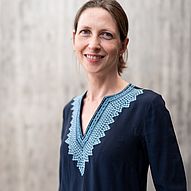
Research
We are interested in the development of ‘multi-cofactored’ complexes, as catalysts for multi-electron transformations. These complexes include multiple metal sites and/or redox-active organic functionalities, which can supply or accept electrons. The compounds exhibit a wide range of valent states, varying metal⋅⋅⋅metal interactions, and unique electronic structures. We employ spectroscopic, electrochemical and reactivity studies, often supported by DFT calculations, to characterize our systems.
Mabiq complexes
Decades of research on heme proteins, Vitamin B12 and synthetic analogues have demonstrated the efficiency and versatility of tetraazamacrocyclic compounds for small molecule chemistry and light-harvesting applications. A research area in our group focuses on coordination compounds of the bioinspired macrocyclic biquinazoline ligand, Mabiq. The Mabiq ligand combines a corrin-like diketiminate moiety with a bipyrimidine unit. This unique design affords a redox-active scaffold with two distinct metal binding sites. We have isolated a series of monometallic late transition metal Mabiq complexes with formal oxidation states ranging from 0 → +3, as well as several homo- and hetero-bimetallic compounds. We are examining small molecule activation/production by the complexes, as well as their applications for photoredoxcatalysis. The Co-Mabiq compounds represent a cornerstone of mechanistic investigations concerning electrocatalytic H2 evolution.

Unsymmetric bimetallic complexes
Another research stream centers on the design of novel binuclear scaffolds for multi-electron transformations. We have recently generated an unsymmetric ligand, PDIpCy, that affords two discrete coordination sites: a redox active pyridyl-diimine unit alongside a cyclam group. This combination enables formation of charge localized compounds. The ligand architecture supports non-coupled bimetallic complexes, including heterodinuclear complexes. Each site exhibits distinctive redox properties and reactivity. We anticipate applications for bifunctional catalysis and are currently exploring the small molecule chemistry of our compounds

